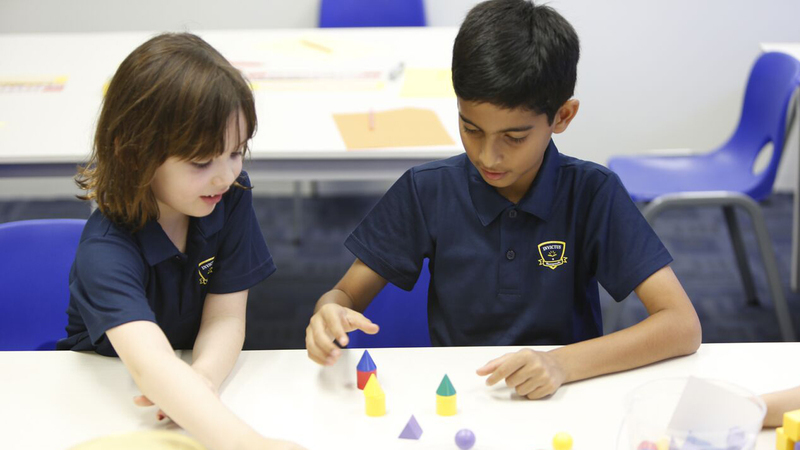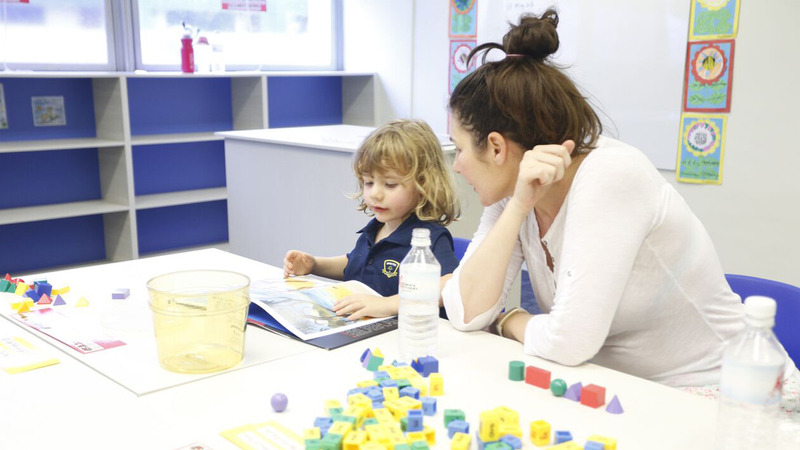- Global
The Story
Building up your child's self esteem and confidence
Every parent wants their child to be successful at school both academically and socially. There isn't a magic wand you can wave over your child to change them into what you wish but you can help them grow from where they are into what you wish for them.
1. Separation anxiety
Lots of children cry when they are first left at school and there are many reasons for this. It is an important milestone and they will have been looking forward to this day. Also, the mix of excitement and fear churning around in their stomachs can produce an emotional response.
Many children are also aware that they are the center of their mother's universe so they are not anxious on their own behalf but on their parents. "What is Mum going to do without me all day?"
You can help resolve all these fears by a little planning and a few Golden Rules.
Firstly, never, ever, ever, sneak off and leave your child. It just makes the anxiety worse, if they are distracted and then they turn around and you have left them. You must always say "goodbye" tell them where you are going and what time you will be back. Don't use vague phrases either 'in a minute' isn't good enough. Be exact and stick to the time you said for your return.
Rehearse the night before where each member of the family is going and what they will be doing the next day. Explain clearly to your child that while they are at school, everyone else has a good day planned that they are looking forward to.
If your child knows that their mother isn't going to be at home crying because they miss them, they will get on and enjoy their day at school.
2. Friendships
Friends are very important to your child's development. The most social students see their friend outside school life; they have 'playdates' see friends at the cinema and go swimming or to the park with them. These out of school experiences are important because they give children common ground.
Don't presume that your friend's children will become your children's friends either. Just because you are happy socializing with another family doesn't mean that your child is.
As children go up through the school, studying with friends is very effective at consolidating their learning. If they have to explain concepts to others then they will have truly understood their learning.

Friends are very important to your child's development
Ask your child's teacher who their friends are and pass your details to other parents with a request to get in touch. You should never presume to ask for another's contact information.
3. Actively listen to your child
You often see parents on their mobile phones or chatting to their own friends and ignoring their children. Try to give your child your total undivided attention, as often as they need it. They are the best things you have ever done; so invest your attention in them. If children know that you enjoy their company and that you really listen to them, their self-confidence and self-esteem soar.
4. Choose your conversation time
If you ask your child what they did at school that day, as soon as they leave school, you will be answered with a short answer or maybe even "nothing"
The best time to have a conversation with your child is when your finger is on the light switch at bedtime. Ask them any question at this time and they will answer at length and in glorious detail. You will learn everything about school, about their friends, about TV programmes, computer games - you ask and they will tell you everything.

Choose your right conversation time with your kid
Also, try to talk to your boys when you are side on to them - generally speaking boys prefer not to be in your direct line of vision. Talking in the car or next to them on the sofa is better.
5. Eat meals together
In our busy lives it is sometimes hard to make sure that we sit together as a family at mealtimes, however, all the research shows that good old-fashioned family meals are more important than our Grandparents realized. If you can't eat together every day, try to do it as often as you can. Please make sure you sit with your child while they eat and don't leave them on their own.
Talk about the food, their day, model table manners and how to have a conversation with them. Make them laugh and laugh with them.
